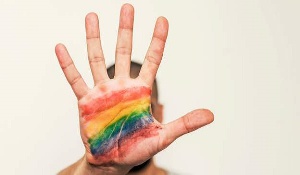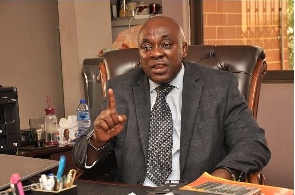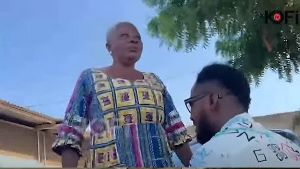Sarah Hegazi, 30, a prominent queer Egyptian feminist, committed suicide on Saturday in exile in Canada. She bore the scars of torture and assault she endured in prison in Cairo following her arrest for raising the Pride flag at a concert in 2017.
"The sky is sweeter than the earth! And I want the sky, not the earth," 30-year-old Hegazi wrote on Saturday, in her last Instagram post.
Hegazi died in Toronto, where she had sought asylum in 2018 after her arrest for daring to raise the rainbow pride flag at a concert in Cairo in 2017.
The concert featured Mashrou' Leila - a gay-friendly Lebanese band whose lead singer, Hamed Sinno, is openly gay. She waved a rainbow flag, the symbol of pride used by queer and transgender people worldwide.
The defiant gesture in a country where homosexuality can be punished by law outraged many in the Egyptian establishment. There followed a three-week anti-gay crackdown in which Hegazi was the only woman arrested.
She was charged with "joining a banned group aimed at interfering with the constitution", "inciting debauchery" and handed a three-month prison sentence.
Scars of torture and assault
When Hegazi was released on bail she found asylum in Canada. But despite finding protection there, she continued to be haunted by what had happened.
In an interview with CBC News in 2018, she talked about the trauma of imprisonment, how she had been tortured by members of the Egyptian police during her detention, including the use of electric shocks, and solitary confinement.
"Even after my release, fear of everyone, family, friends, and the street continued to haunt me," she wrote in 2018 on the website Mada Masr, Egypt's last independent news outlet.
She expressed her feelings of alienation and isolation in exile and fears of being arrested again if she returned to Egypt.
"A year after the Mashrou' Leila concert, a year after [Egypt's] biggest security attack against gay people, a year after I announced my difference (Yes, I am a gay), I have not forgotten my enemies. I have not forgotten the injustice that left black spots carved in my soul and bleeding, spots that doctors had never been able to treat."
Hegazi's death has sent shock waves through the LGBTQ community both in the Middle East and around the world. The now-iconic photo of her beaming as she brandishes the pride flag inspired the #RaiseTheFlagForSarah hashtag on social media.
For musician Hamed Sinno, also an LGBTQ activist, Hegazi's death is linked to wider violence inflicted on LGBTQ people's bodies and minds.
"We are born into trauma, and we carry it with us wherever we go," he wrote on Facebook. "That is what trauma does to the body. That is what hate does to the body."
Egyptian President Abdel Fatah al-Sisi's crackdown on free expression has been well-documented by rights groups.
Rasha Younes, a researcher with the LGBT Rights Program at Human Rights Watch, laid the blame for Hegazi's death firmly at President al-Sisi's door.
"From 2013, when Abdel Fattah al-Sisi took power, to 2017, when Sarah was arrested, Egyptian authorities arrested or charged tens of thousands of people, forcibly disappeared hundreds for months at a time, handed down preliminary death sentences to hundreds more, and tried thousands of civilians in military courts," Younes wrote.
"The nationwide repression has inexorably continued, and hundreds have been detained on the basis of sexual orientation or gender identity alone."
Younes' message to the Egyptian government was unequivocal:
"We, queer feminists, are the collective force etching at your oppression, raising our flags and voices and fists until you are held accountable for robbing Sarah and countless others of their bodily autonomy, their home, and their lives."
- 2024 elections: What potential presidential candidates have said about LGBT+ rights
- ‘Technicalities of law are being used to delay passage of anti-gay bill into law' – Chief Imam’s spokesperson
- Assent anti-gay bill into law when Akufo-Addo travels - Dafeamekpor tells Bawumia
- Tell me when to transmit anti-LGBT+ Bill to the president – Clerk of Parliament to Bediatuo Asante
- LGBTQ: I am against it now and I will be against it as President; no ifs or buts - Dr. Bawumia
- Read all related articles













